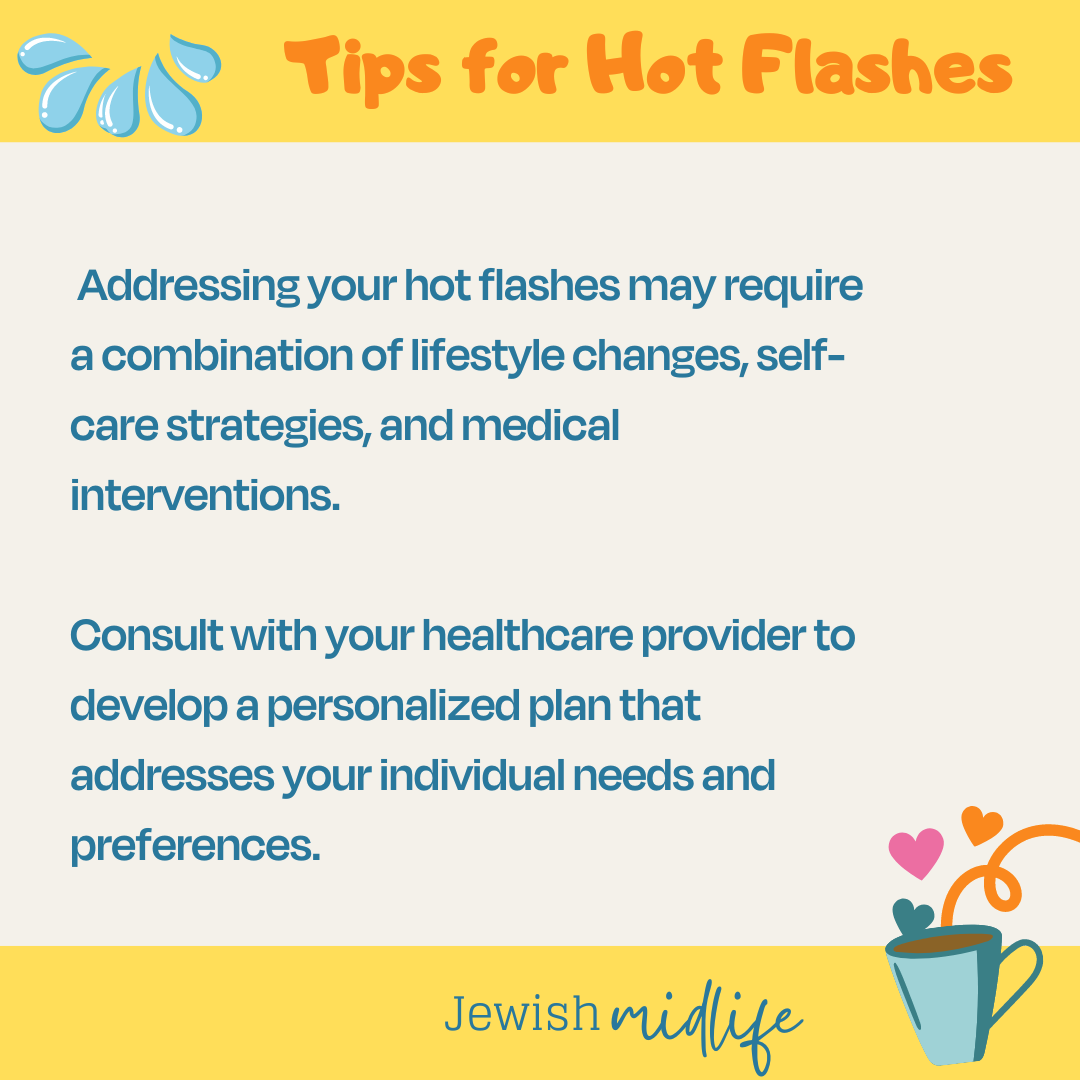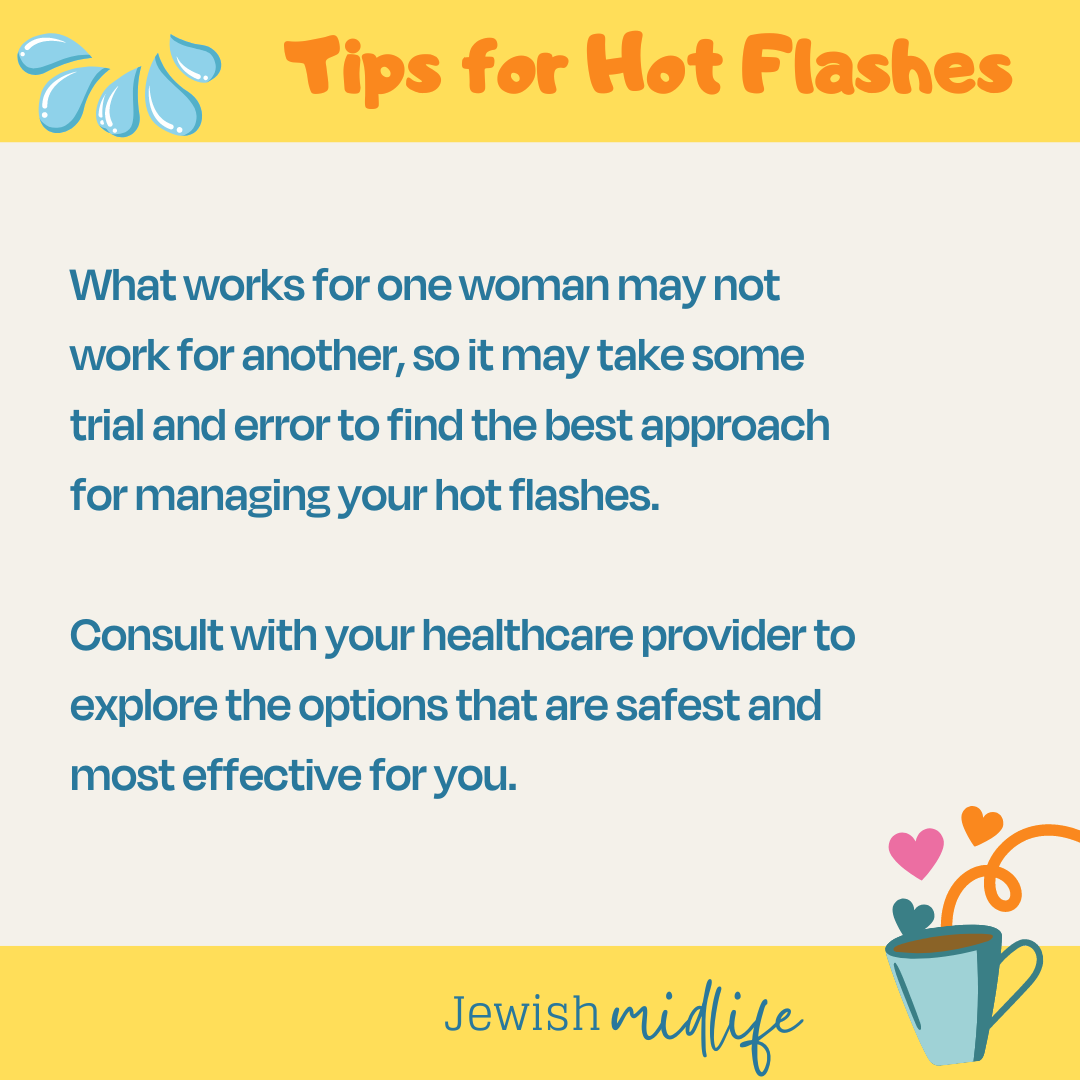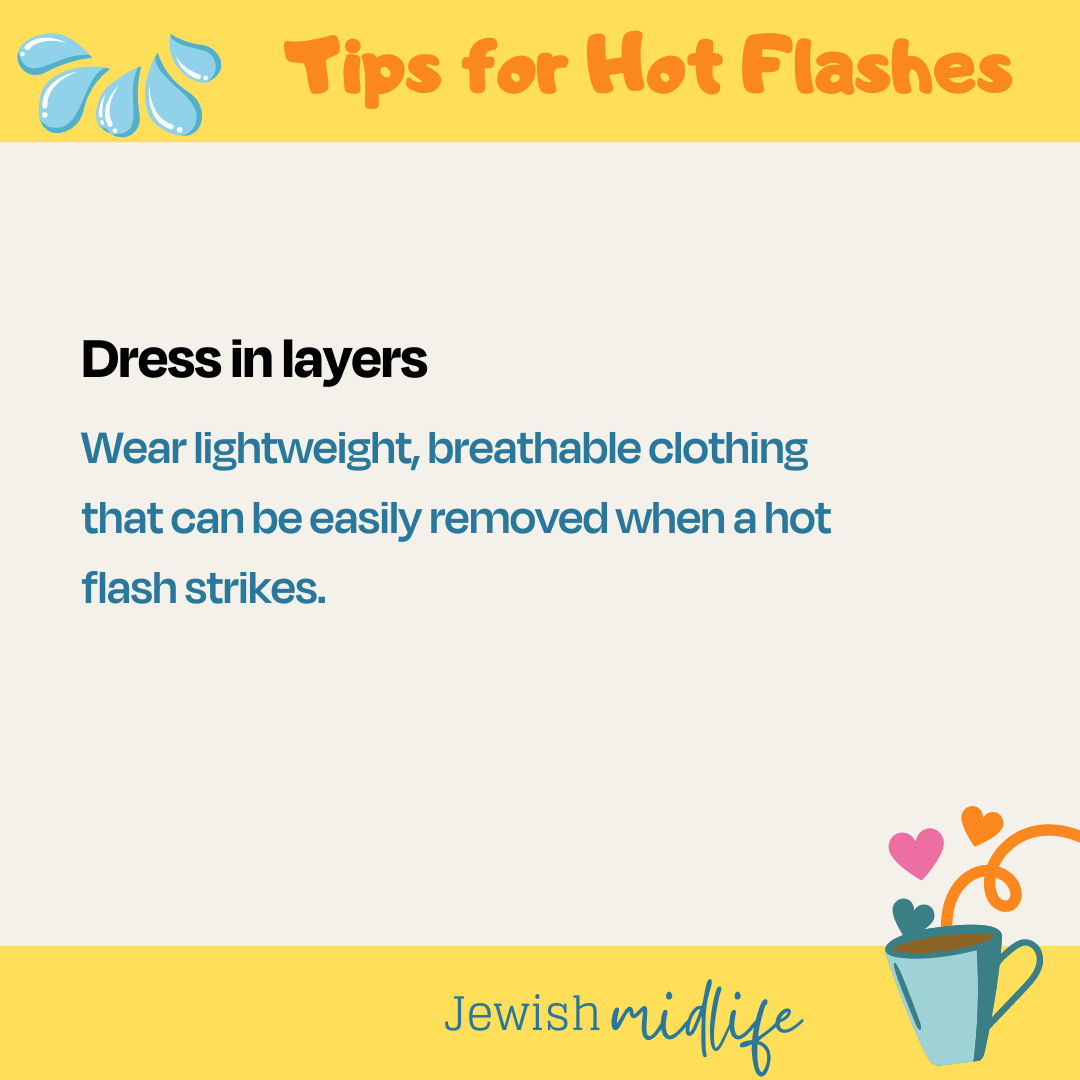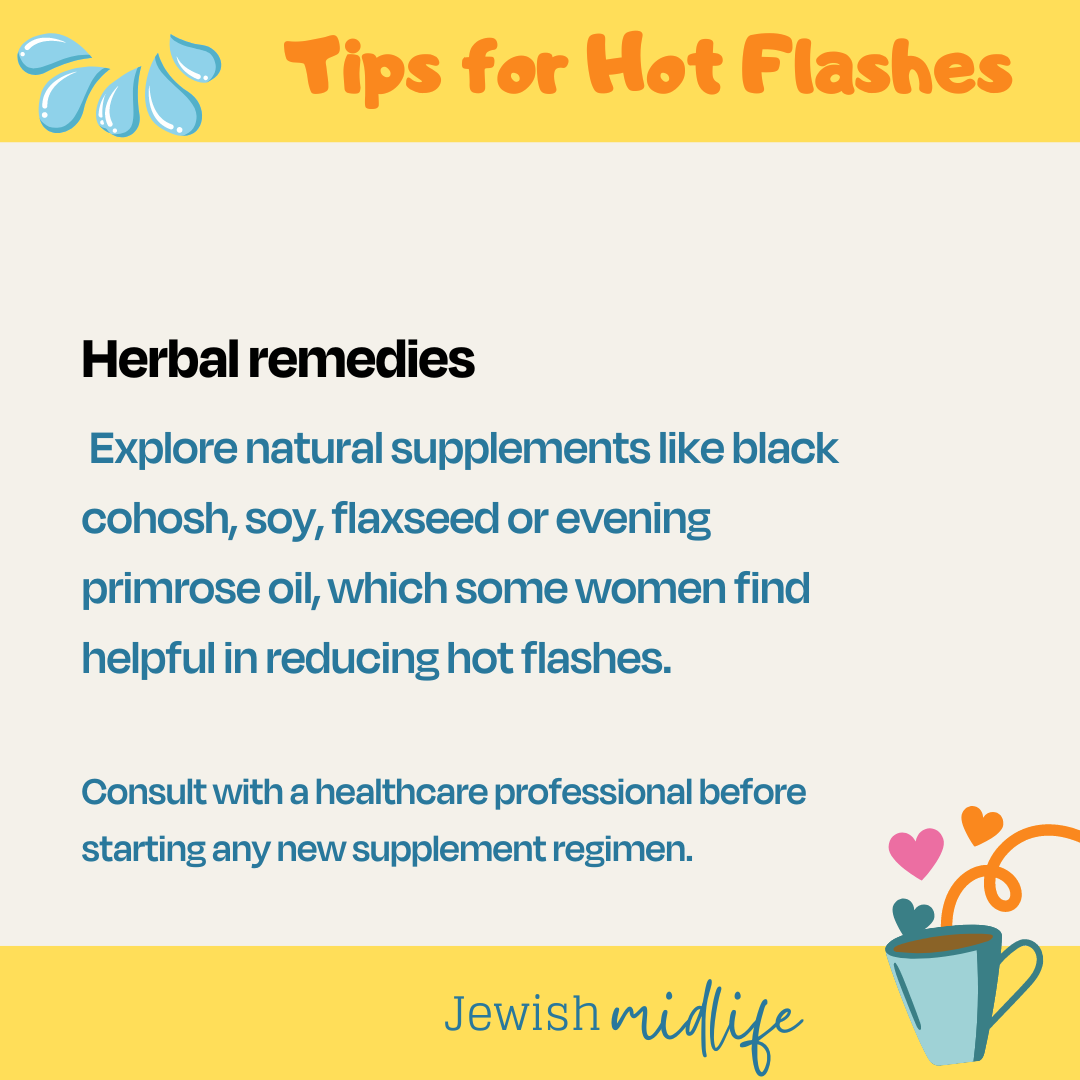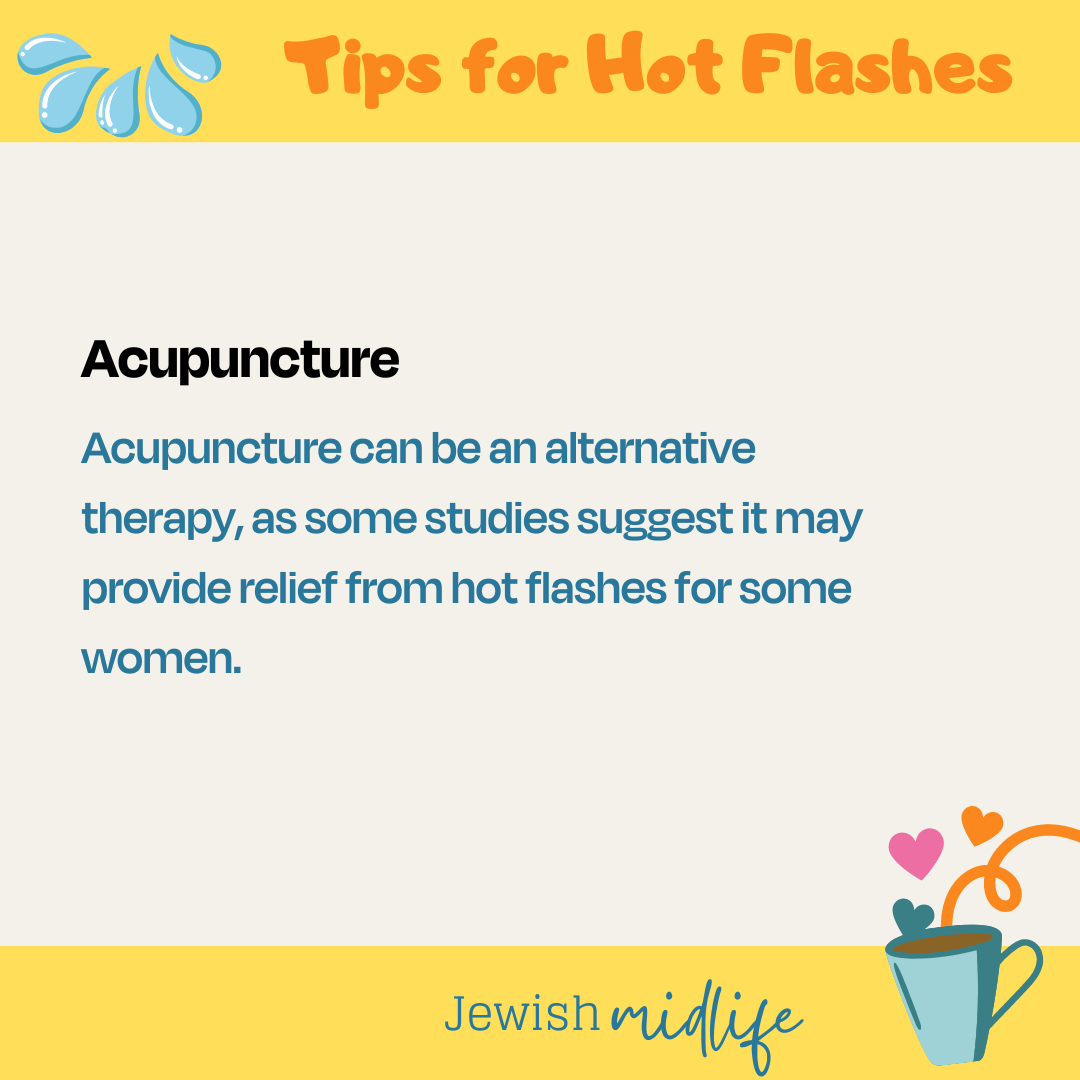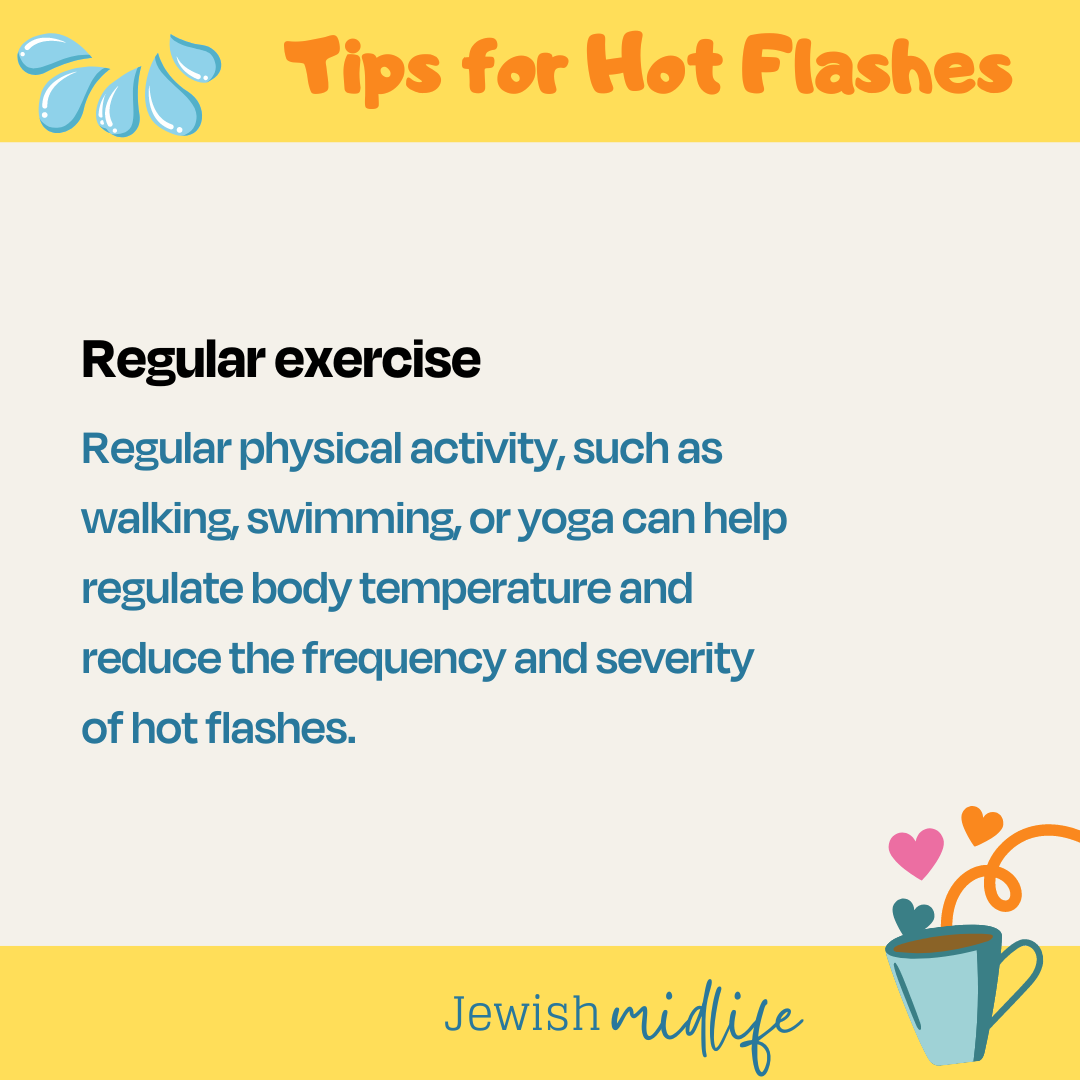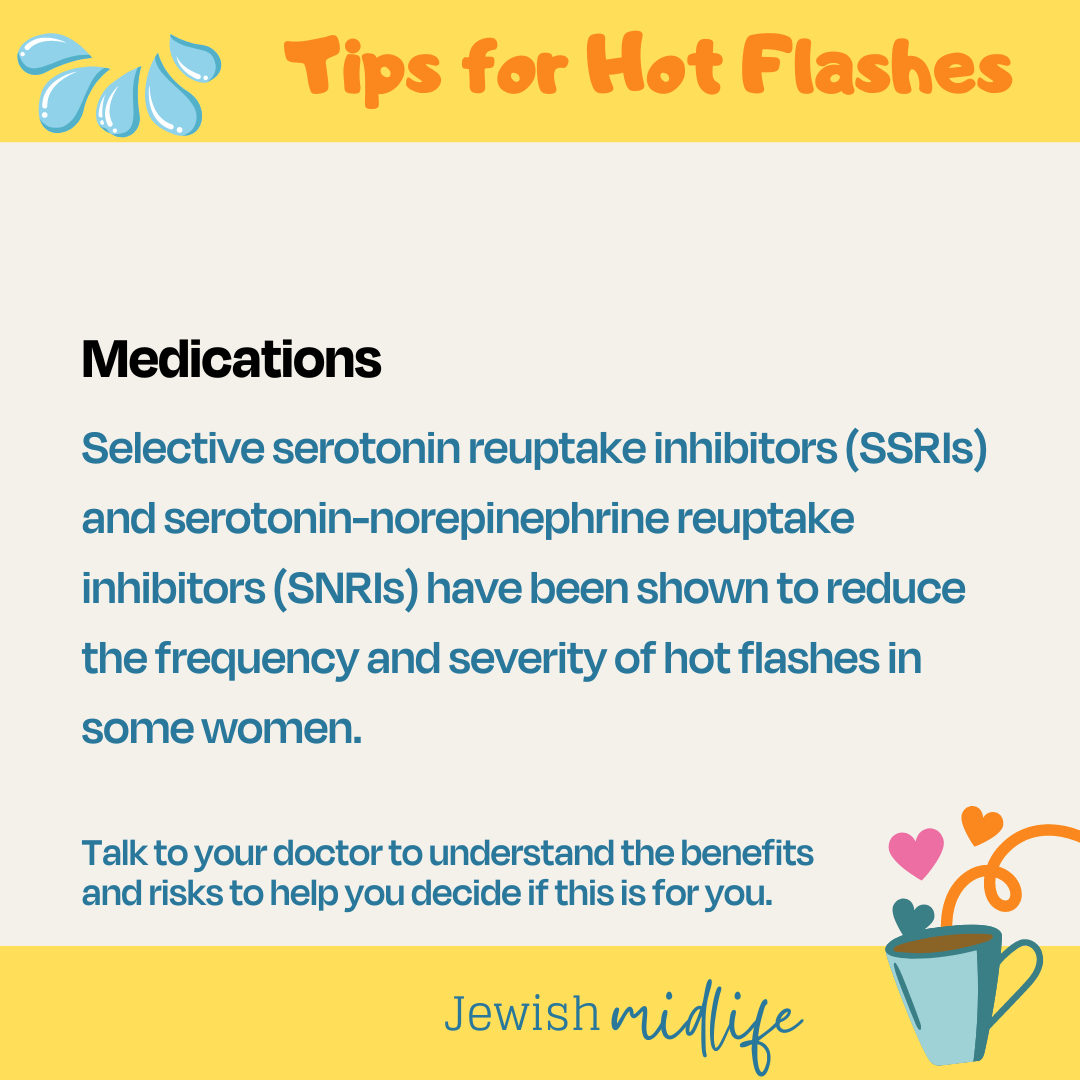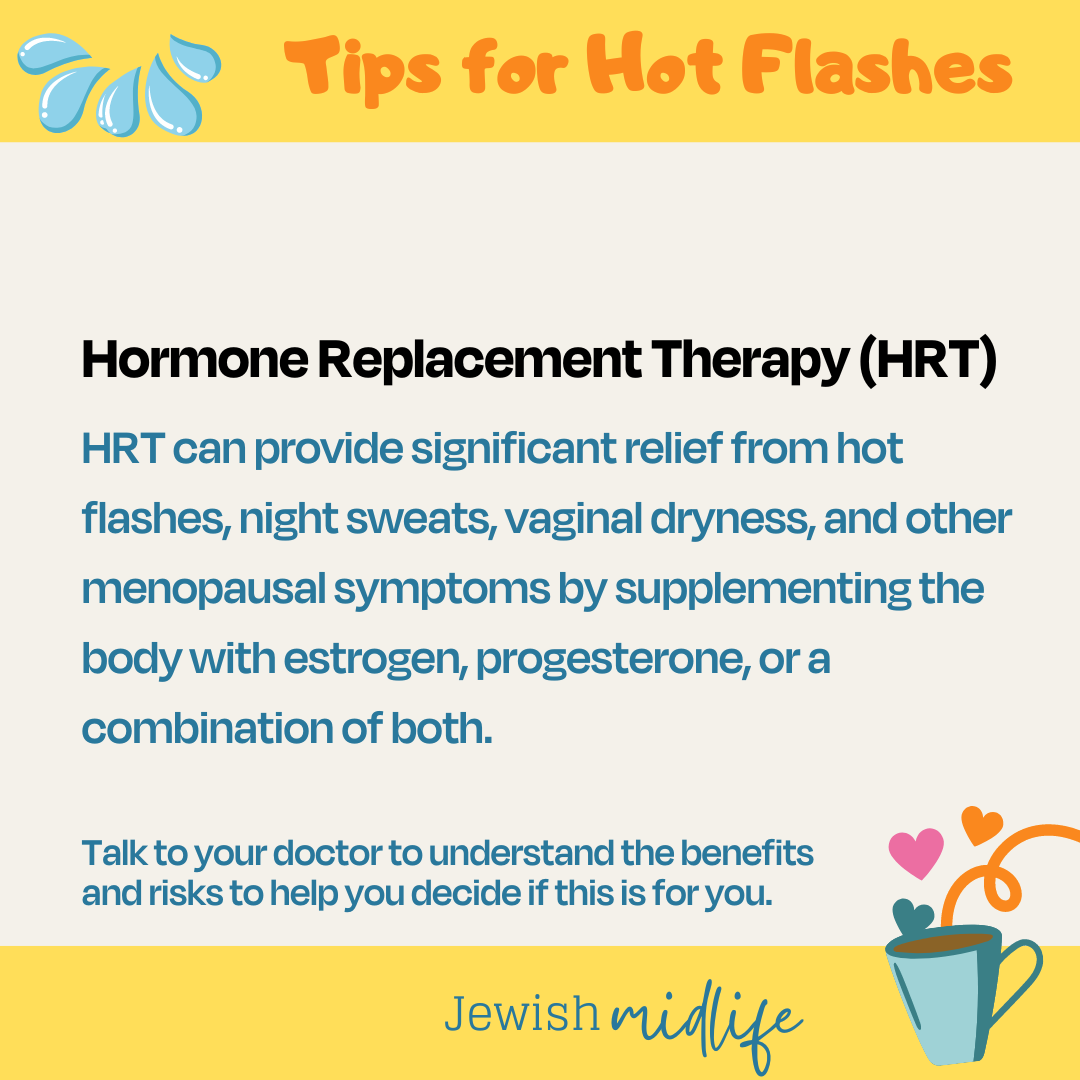Addressing your hot flashes may require a combination of lifestyle changes, self-care strategies, and medical interventions.
Consult with your healthcare provider to develop a personalized plan that addresses your individual needs and preferences.
What works for one woman may not work for another, so it may take some trial and error to find the best approach for managing your hot flashes.
Consult with your healthcare provider to explore the options that are safest and most effective for you.
Dress in layers: Wear lightweight, breathable clothing that can be easily removed when a hot flash strikes.
Stay cool: Use fans or air conditioning to maintain a comfortable temperature in your environment.
Mindful breathing: Practice deep breathing exercises or meditation techniques to help manage stress, which can trigger hot flashes.
Stay hydrated: Drink plenty of water throughout the day to stay hydrated and potentially reduce the frequency of hot flashes.
Avoid triggers: Identify and avoid triggers such as spicy foods, caffeine, alcohol, and smoking, which can exacerbate hot flashes.
Herbal remedies: Explore natural supplements like black cohosh, soy, flaxseed or evening primrose oil, which some women find helpful in reducing hot flashes. Consult with a healthcare professional before starting any new supplement regimen.
Acupuncture: Acupuncture can be an alternative therapy, as some studies suggest it may provide relief from hot flashes for some women.
Regular exercise: Regular physical activity, such as walking, swimming, or yoga can help regulate body temperature and reduce the frequency and severity of hot flashes.
Medications: Selective serotonin reuptake inhibitors (SSRIs) and serotonin-norepinephrine reuptake inhibitors (SNRIs) have been shown to reduce the frequency and severity of hot flashes in some women. Talk to your doctor to understand the benefits and risks to help you decide if this is for you.
Hormone Replacement Therapy (HRT): HRT can provide significant relief from hot flashes, night sweats, vaginal dryness, and other menopausal symptoms by supplementing the body with estrogen, progesterone, or a combination of both. Talk to your doctor to understand the benefits and risks to help you decide if this is for you.


